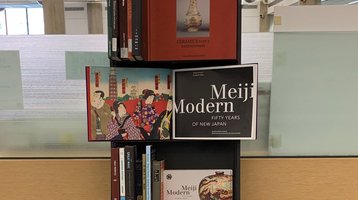Library collections budget for FY21
In response to the extraordinary financial implications of the Covid-19 pandemic, the University has reduced capital budgets across campus, including the library’s collections budget, for FY21. The library will strategically reduce spending on books, journals, and other materials to minimize impact on teaching and research. Such reductions in library spending are occurring across academia; we are working with publishers to negotiate pricing and collaborating with partner institutions as we engage in managed collective collecting.
Both the Big Ten Academic Alliance and the Ivy Plus Library Confederation are making major investments to develop true collective collection building programs. By purchasing wisely to ensure completeness while avoiding unnecessary duplication, we can build a collective collection that will provide access to a stronger and deeper physical collection by members of our distinguished institutions.
As part of our cost reduction plan for FY21, we have made the difficult decision to discontinue our subscription to packaged collections of journals from some publishers, including Elsevier Science Direct. We will instead subscribe to a smaller number of individual journal titles that are most heavily used at Chicago. Subject specialists have been reviewing titles for retention and will be communicating with faculty in related areas as decisions are finalized. Many articles requested are from previous years and remain available, as we will still retain access to back years of the majority of the titles we cancel. In addition, we are enhancing Interlibrary Loan to reduce article delivery times, most unsubscribed content will be delivered via PDF within two business days.
We would like to highlight key decisions that help guide our pathway through FY21:
- The library is strongly preferring the purchase of materials in E-format whenever possible. With our user population scattered across the globe, electronic access provides the widest and most equitable access to all our users, wherever they are located.
- We have gone 100% electronic for library course reserves for the same reasons. This will increase our spending on reserve materials, and we have increased the budget that supports library reserves in light of those increased costs.
- Where appropriate, we are fulfilling patron requests in electronic format, including in situations where we own the title in print format, providing immediate access to the content.
The library puts our users at the center of all we do, and even with a reduced budget, we will support the needs of our students and researchers, recognizing that open and equitable access to information is a cornerstone of research and education.
“The Library is committed to meeting the research, teaching, and learning needs of our faculty, students and staff, and I encourage members of our campus community to reach out to our subject specialists with any questions or requests,” said Brenda L. Johnson, Library Director and University Librarian. “They are eager to answer your questions and work with you to find solutions.”


